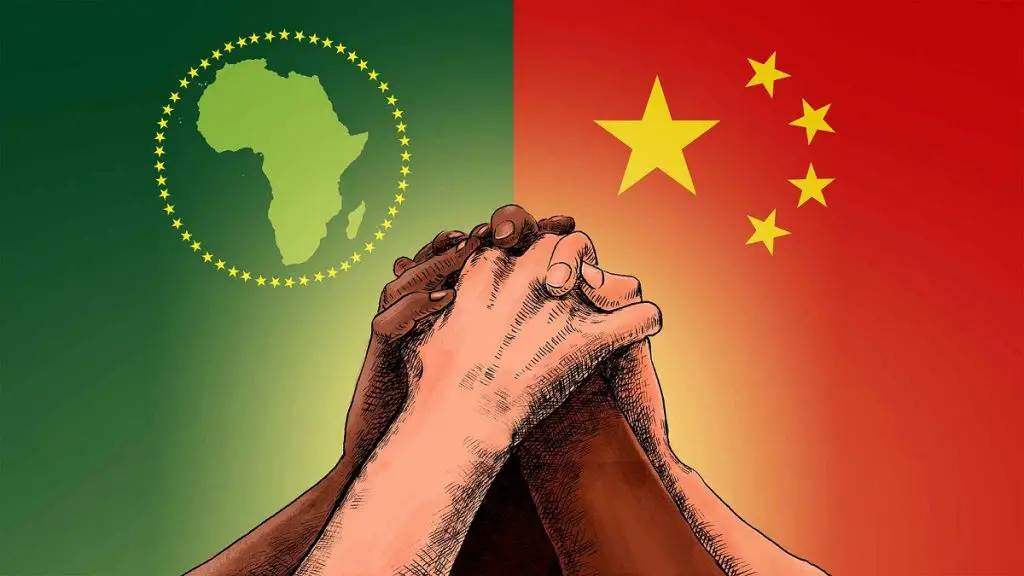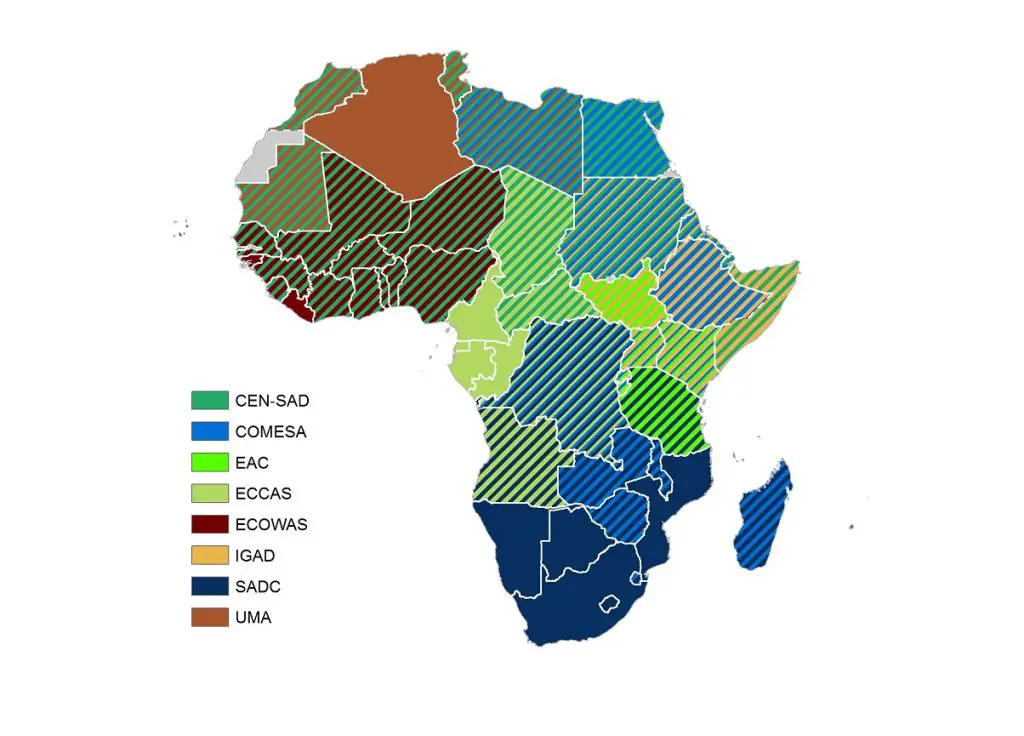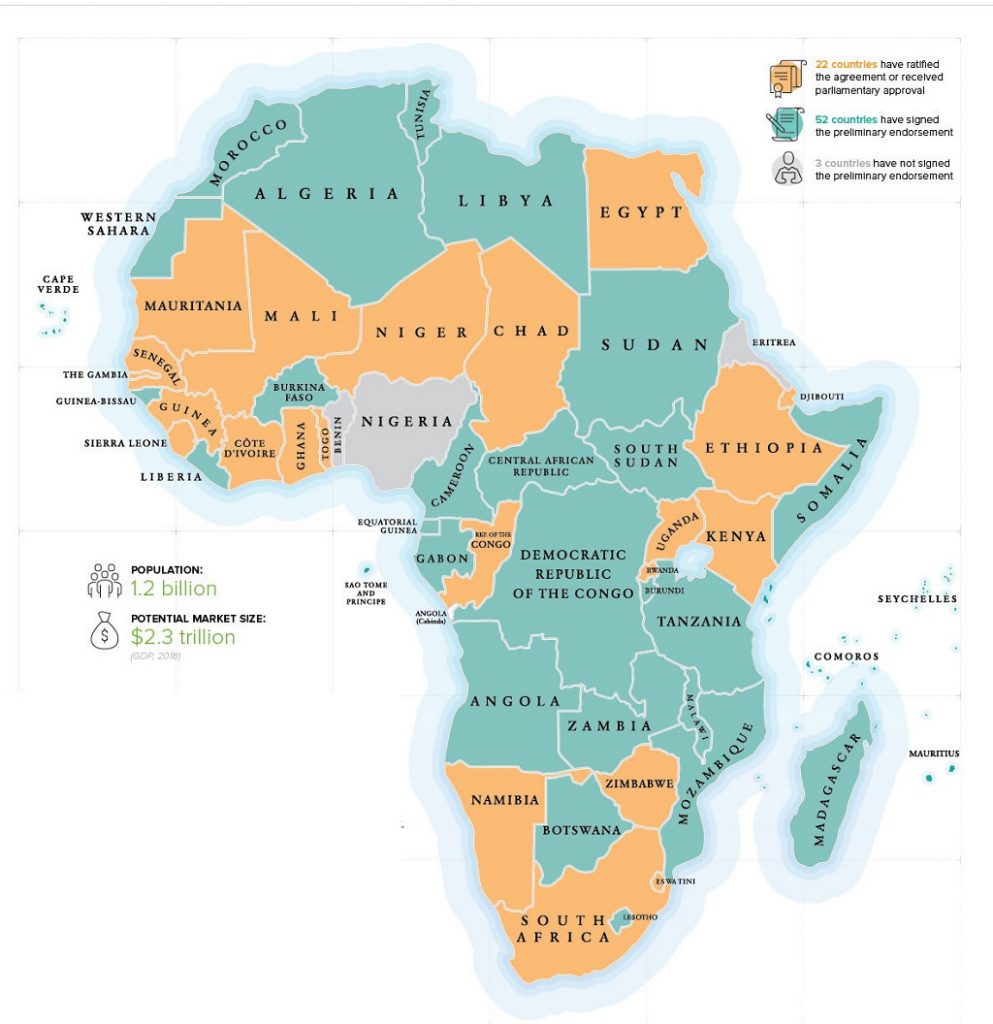- AmCham Summit kicks off, setting course for robust future of US-East Africa trade ties
- Why the UN is raising the red flag on the UK-Rwanda asylum treaty
- Portugal’s Galp Energia projects 10 billion barrels in Namibia’s new oil find
- Wärtsilä Energy offers tips on how Africa can navigate energy transition and grid reliability
- Powering Africa: Africa’s Path to Universal Electricity Access
- Global investment trends at AIM Congress 2024: a spotlight on the keynote speakers
- South Africa’s deepening investment ties in South Sudan oil industry
- Agribusiness could drive Africa’s economic prosperity
Browsing: African Continental Free Trade Area
For almost a decade now, China’s presence in Africa continues rumbling the West which has been relegated to an almost observer state by the Asian giant.
As the latest scramble for the resource-rich continent gathers pace and with the shift from aid dependence to homegrown solutions, China has been a welcome handyman in fixing problems through expensive infrastructural projects commissioned by leaders who have a huge legacy stake in them. However, these projects are raising more questions than answers from citizens and observers.
The questions arise from the fact that in real life, the economies have not been growing as much as they are depicted in papers and flamboyant GDP plans. Again, many nations are now stuck in the red since in a state of distress as loans fall due and with no means to service them.
Golden opportunities at bridge connecting 8 African countries
These African nations are having …
Already, China, Russia and Pakistan are laying out plans to start conducting bilateral trade and investment while issuing bonds in local and national currencies instead of the US dollar.
The eight-member countries of the Shanghai Cooperation Organization (SCO) are to finalise a road map introducing a system of mutual settlement of national currencies.
Other SCO members include India, Kyrgyzstan, Tajikistan and Uzbekistan while observer countries Iran, Afghanistan, Belarus and Mongolia are looking to become regular members of the SCO.
With the covid-19 coronavirus pandemic, it seems that the world is realigning itself for a new way of doing business.…
With the covid-19 coronavirus global crisis affecting, Africa could be hit harder with a heavy and durable economic toll.
This hit will threaten progress and prospects, widen inequalities between and within countries and worsen current fragilities.
To survive this, the Economic Commission for Africa (ECA) says that African countries need support in preparing for the health crisis, and for the economic fallout.
Coronavirus: African leaders stuck with neglected, outdated healthcare systems
“The measures being taken in Asia, Europe and North America such as physical (social) distancing and regular hand washing will be a particular challenge for countries with limited internet connectivity, dense populations, unequal access to water and limited social safety nets,” notes ECA.
In line with the steps being taken across the globe, African countries are preparing for the worst effects of this pandemic.
To help Africa survive the crisis, ECA says that the G20 must support an immediate …
With the covid-19 coronavirus pandemic slowing down the global economy’s growth, Africa could just be in time for a revolution that could help it recover faster than the rest of the world.
For starters, the continent is advantaged by having fewer infections which could make it possible for Africa to successfully curtail the spread of the coronavirus if strict measures are taken. While this move may not be uniformly undertaken continent-wide, the ravages of the Ebola virus have prepared many to deal with the pandemic. From years of suffering from viral infections, the continent is well placed to stop the virus in its tracks.
But this comes at a cost since governments should be willing to spend on their people to ensure that the majority who live on daily casual wages are provided for to help them stay in during lockdowns.
Coronavirus: African leaders stuck with neglected, outdated healthcare systems
…The East African region has a combined GDP of US$ 880 billion and a population of 437 million.
Despite this attractive combination, the economies of East Africa are still highly fragmented with low intra-regional trade and investment levels. To make matters worse, the trade and investment have been declining.
The region’s biggest economies of Kenya and Ethiopia have an annual bilateral trade worth less than US$ 100 million since they barely trade with each other.
While these two economise paint a rough picture of the trade imbalances in the region, trading within the East African Community (EAC) is higher with exports peaking in 2013 at US$ 3.5 billion. Again, unfortunately, by 2017 the exports volumes had declined with earnings reducing by 31 per cent to just US$ 2.4 billion.
The lack of trade integration poses a serious impediment to the future development of the region despite the fact that the …









